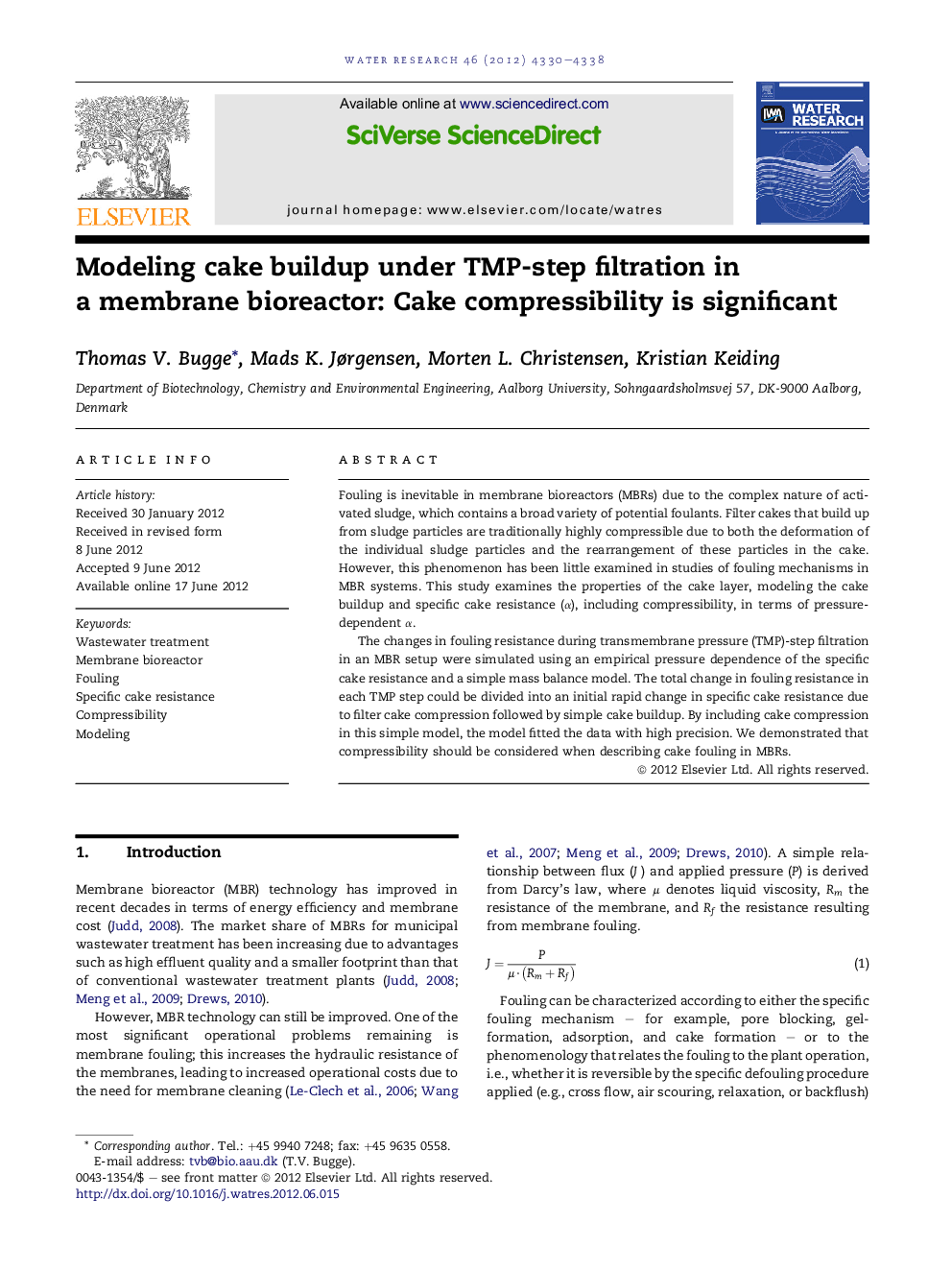| Article ID | Journal | Published Year | Pages | File Type |
|---|---|---|---|---|
| 4482202 | Water Research | 2012 | 9 Pages |
Fouling is inevitable in membrane bioreactors (MBRs) due to the complex nature of activated sludge, which contains a broad variety of potential foulants. Filter cakes that build up from sludge particles are traditionally highly compressible due to both the deformation of the individual sludge particles and the rearrangement of these particles in the cake. However, this phenomenon has been little examined in studies of fouling mechanisms in MBR systems. This study examines the properties of the cake layer, modeling the cake buildup and specific cake resistance (α), including compressibility, in terms of pressure-dependent α.The changes in fouling resistance during transmembrane pressure (TMP)-step filtration in an MBR setup were simulated using an empirical pressure dependence of the specific cake resistance and a simple mass balance model. The total change in fouling resistance in each TMP step could be divided into an initial rapid change in specific cake resistance due to filter cake compression followed by simple cake buildup. By including cake compression in this simple model, the model fitted the data with high precision. We demonstrated that compressibility should be considered when describing cake fouling in MBRs.
Graphical abstractFigure optionsDownload full-size imageDownload high-quality image (114 K)Download as PowerPoint slideHighlights► Cake fouling in MBRs was studied through modeling of TMP step filtration. ► A model with simple cake buildup and compressibility was successfully applied. ► Compressibility should be considered in MBRs operated with variable TMP.
